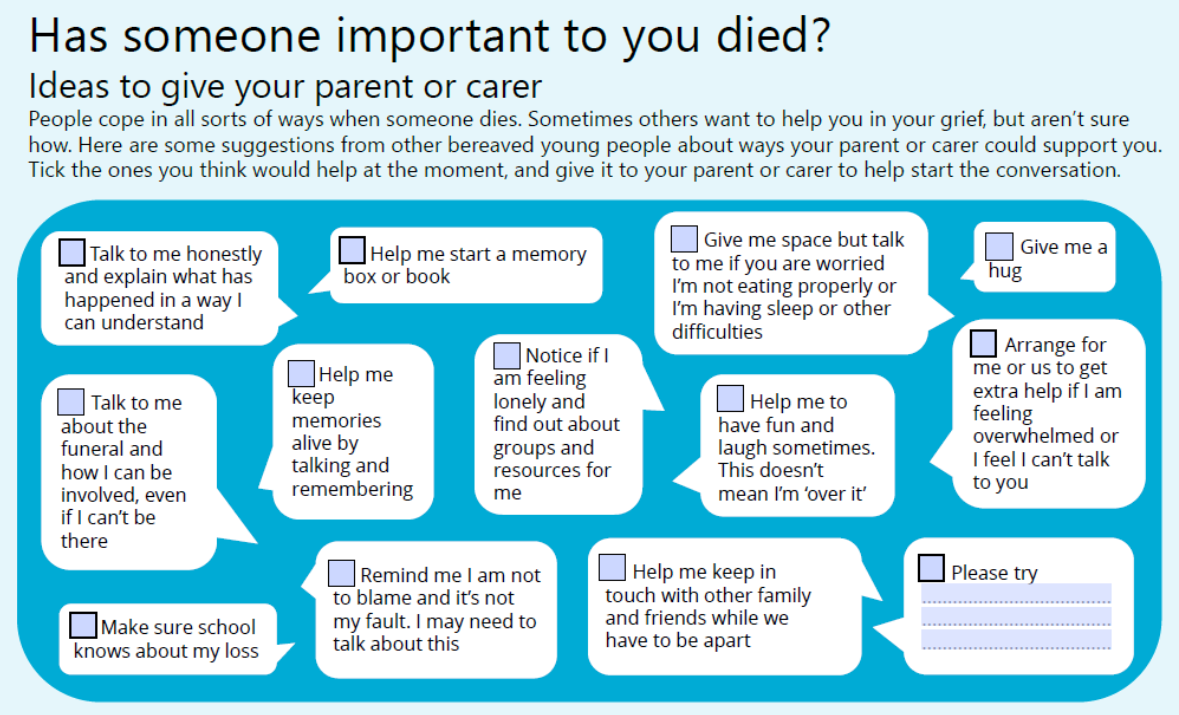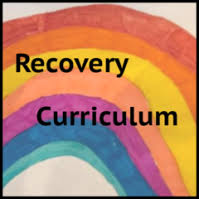-
Key statistics on bereaved children (Childhood Bereavement Network)
-
How to support bereaved children: a comprehensive guide (TES Magazine)
Bereavement Support During Lockdown - webinar (TES and Grief UK vodagogy)
Articles by Winston's Wish
Winston's Wish was the UK's first childhood bereavement charity. They provide a range of offers and services including bereavement support training, freely available resources, helplines, and articles including the following:



 Barry Carpenter, Professor of Mental Health in Education at Oxford Brookes University and Matthew Carpenter, Principal of Baxter College in Worcestershire have produced this think piece on implementing a recovery curriculum post-pandemic.
Barry Carpenter, Professor of Mental Health in Education at Oxford Brookes University and Matthew Carpenter, Principal of Baxter College in Worcestershire have produced this think piece on implementing a recovery curriculum post-pandemic. 